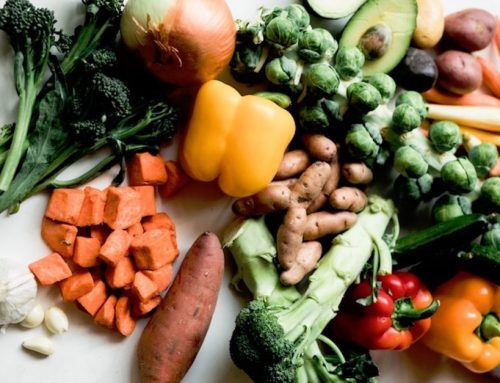[fusion_builder_container hundred_percent=”no” hundred_percent_height=”no” hundred_percent_height_scroll=”no” hundred_percent_height_center_content=”yes” equal_height_columns=”no” menu_anchor=”” hide_on_mobile=”small-visibility,medium-visibility,large-visibility” status=”published” publish_date=”” class=”” id=”” border_size=”” border_color=”” border_style=”solid” margin_top=”” margin_bottom=”” padding_top=”” padding_right=”” padding_bottom=”” padding_left=”” gradient_start_color=”” gradient_end_color=”” gradient_start_position=”0″ gradient_end_position=”100″ gradient_type=”linear” radial_direction=”center” linear_angle=”180″ background_color=”” background_image=”” background_position=”center center” background_repeat=”no-repeat” fade=”no” background_parallax=”none” enable_mobile=”no” parallax_speed=”0.3″ background_blend_mode=”none” video_mp4=”” video_webm=”” video_ogv=”” video_url=”” video_aspect_ratio=”16:9″ video_loop=”yes” video_mute=”yes” video_preview_image=”” filter_hue=”0″ filter_saturation=”100″ filter_brightness=”100″ filter_contrast=”100″ filter_invert=”0″ filter_sepia=”0″ filter_opacity=”100″ filter_blur=”0″ filter_hue_hover=”0″ filter_saturation_hover=”100″ filter_brightness_hover=”100″ filter_contrast_hover=”100″ filter_invert_hover=”0″ filter_sepia_hover=”0″ filter_opacity_hover=”100″ filter_blur_hover=”0″ admin_toggled=”no”][fusion_builder_row][fusion_builder_column type=”1_1″ layout=”1_1″ spacing=”” center_content=”no” link=”” target=”_self” min_height=”” hide_on_mobile=”small-visibility,medium-visibility,large-visibility” class=”” id=”” hover_type=”none” border_size=”0″ border_color=”” border_style=”solid” border_position=”all” border_radius=”” box_shadow=”no” dimension_box_shadow=”” box_shadow_blur=”0″ box_shadow_spread=”0″ box_shadow_color=”” box_shadow_style=”” padding_top=”” padding_right=”” padding_bottom=”” padding_left=”” margin_top=”” margin_bottom=”” background_type=”single” gradient_start_color=”” gradient_end_color=”” gradient_start_position=”0″ gradient_end_position=”100″ gradient_type=”linear” radial_direction=”center” linear_angle=”180″ background_color=”” background_image=”” background_image_id=”” background_position=”left top” background_repeat=”no-repeat” background_blend_mode=”none” animation_type=”” animation_direction=”left” animation_speed=”0.3″ animation_offset=”” filter_type=”regular” filter_hue=”0″ filter_saturation=”100″ filter_brightness=”100″ filter_contrast=”100″ filter_invert=”0″ filter_sepia=”0″ filter_opacity=”100″ filter_blur=”0″ filter_hue_hover=”0″ filter_saturation_hover=”100″ filter_brightness_hover=”100″ filter_contrast_hover=”100″ filter_invert_hover=”0″ filter_sepia_hover=”0″ filter_opacity_hover=”100″ filter_blur_hover=”0″ last=”no”][fusion_title title_type=”text” rotation_effect=”bounceIn” display_time=”1200″ highlight_effect=”circle” loop_animation=”off” highlight_width=”9″ highlight_top_margin=”0″ before_text=”” rotation_text=”” highlight_text=”” after_text=”” hide_on_mobile=”small-visibility,medium-visibility,large-visibility” class=”” id=”” content_align=”center” size=”4″ font_size=”” animated_font_size=”” line_height=”” letter_spacing=”” margin_top=”” margin_bottom=”” margin_top_mobile=”” margin_bottom_mobile=”” text_color=”” animated_text_color=”” highlight_color=”” style_type=”default” sep_color=””]Are You Addicted to Certain Foods?[/fusion_title][fusion_text columns=”” column_min_width=”” column_spacing=”” rule_style=”default” rule_size=”” rule_color=”” hide_on_mobile=”small-visibility,medium-visibility,large-visibility” class=”” id=”” animation_type=”” animation_direction=”left” animation_speed=”0.3″ animation_offset=””]
The effects of certain foods on the brain make it hard for some people to avoid them, even if they go against an Active Wellness lifestyle. Since food is something we need in order to exist, we don’t always think of it as an addiction; however, many of us lose control around specific unhealthy foods and that is where food may produce behaviors similar to more commonly accepted addictions, such as drugs or alcohol.
The most problematic foods include junk foods generally high in sugar, fat and artificial flavor enhancers. They’re notably bad for us, and many of us continue to eat them. Unlike drug addiction, there is no blood test to diagnose food addiction. It’s based on behavior. Health professionals assert that if we have four to five of these eight common symptoms, we likely have a food addiction :1
- Craving certain foods despite feeling full and just having eaten a healthy meal
- Eating more than intended of a craved food
- Eating a craved food to the point of feeling sick
- Feeling guilty after eating certain foods—then eating them again
- Making up excuses for eating a craved food
- Trying to quit eating certain foods unsuccessfully
- Eating craved foods or unhealthy foods in secret
- Feeling unable to control the eating of unhealthy foods
The concept of food addiction is controversial because not everyone has experienced it or even heard of it. For those who suffer from it, it can be a lifetime struggle and cause multiple health risks. These include overweight and obesity, which may increase the risk of heart problems, digestive issues and diabetes. Those who are unfamiliar with the problem often consider those with food addictions simply to lack will power. The implication is that food addiction can be easily stopped. In reality, health professionals consider food addiction to be as complex as any other disease. Once addicted, eating certain foods changes the brain in ways that make abstaining from them, very hard.2
When eaten, sugar, flour, grains and any other addictive foods, light up the brain’s reward circuit by flooding it with the chemical messenger dopamine. This reward system motivates repeat behaviors, causing people to eat these pleasure-inducing foods repeatedly.3
Just as with any other addiction, certain people are more vulnerable than others. No single factor is predictive, but genetics play a role, as does someone’s environment. The earlier and the more we are exposed to sugar and other addictive substances, the more likely we are to become trapped into desiring them.

Unlike drugs and other addictions, abstinence is not an option when it comes to eating. However, abstinence from the unhealthy craved foods is actually the goal in curbing food addictions. As difficult as it may be, here are some tips to conquer any bad eating habits:4
- Become educated about healthful foods and try them out.
- Be honest about why you’re eating what you know you shouldn’t. What thoughts and emotions do you associate with the food you’re eating?
- Identify social or environmental pressures that lead to unhealthy eating. Avoid them if possible, or explain to people why you are no longer eating certain “triggering” foods.
- Make an action plan to eat well and get moving. Create healthy menus and cook at home. Devise an exercise routine and add to it incrementally as you improve your fitness. Write down Active Wellness goals.
- Be realistic. Abstinence from “bad” food will not happen overnight. Just like quitting smoking, it may take a few tries. Don’t beat yourself up over it. There are no options other than taking it a day at a time.
Nikken nutritional supplements are designed to help us stay on track from head to toe. Whether it’s for digestion, mental clarity, strong bones, weight loss or an energy boost, Nikken provides the highest quality of organically sourced support! Take advantage of our special “three for the price of two” on KVB® Meal Replacement Mix! It’s low in fat and carbohydrates, and has no gluten, no dairy, no GMO, no added salt, no preservatives, no sugar and no artificial flavors—all stuff that can lead to food addiction.
Resources:
- https://www.healthline.com/nutrition/how-to-overcome-food-addiction
- https://foodaddictioninstitute.org/?gclid=Cj0KCQiAxrbwBRCoARIsABEc9sgZ8KWTI3Qf6HtR4PbLKjzmqY9JUuG6nUEXvP5pAORqSvzkY1z4lkIaAkJlEALw_wcB
- https://foodaddictioninstitute.org/?gclid=Cj0KCQiAxrbwBRCoARIsABEc9sgZ8KWTI3Qf6HtR4PbLKjzmqY9JUuG6nUEXvP5pAORqSvzkY1z4lkIaAkJlEALw_wcB
- https://psychcentral.com/blog/expert-tips-for-overcoming-food-addiction/
[/fusion_text][/fusion_builder_column][/fusion_builder_row][/fusion_builder_container]







Leave A Comment